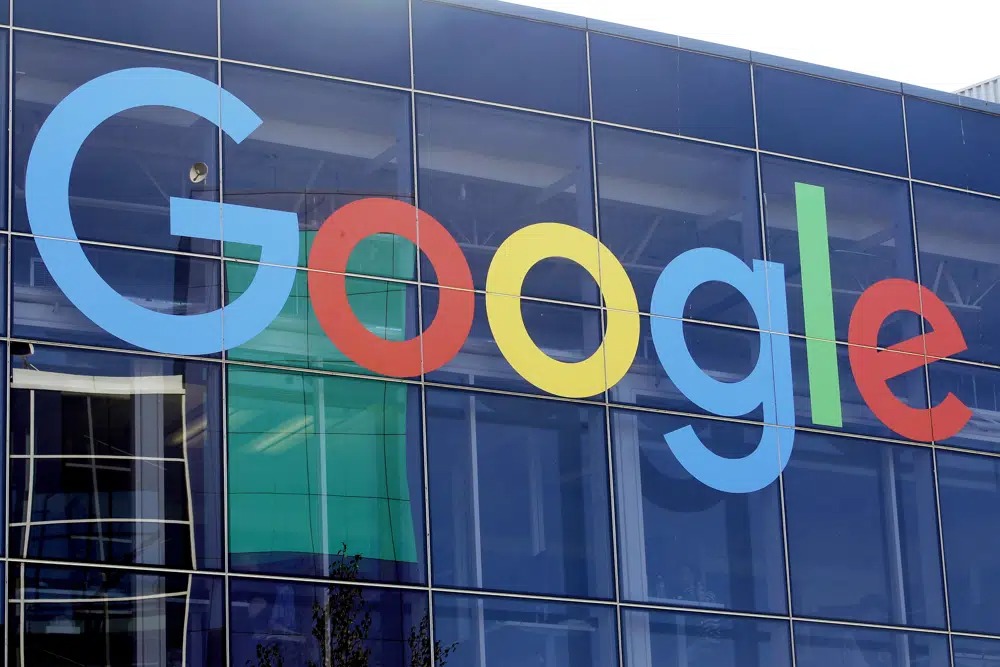The Justice Department and eight states sued Google on Tuesday, alleging that its dominance in digital advertising harms competition.
The government alleges that Google’s plan to assert dominance has been to “neutralize or eliminate” rivals through acquisitions and to force advertisers to use its products by making it difficult to use competitors’ products.
The antitrust suit was filed in federal court in Alexandria, Virginia. Attorney General Merrick Garland was expected to discuss it at a news conference later Tuesday.
The department’s suit accuses Google of unlawfully monopolizing the way ads are served online by excluding competitors. This includes its 2008 acquisition of DoubleClick, a dominant ad server, and subsequent rollout of technology that locks in the split-second bidding process for ads that get served on Web pages.
At minimum, the lawsuit wants Google to split off its advertising business — its ad manager suite and ad exchange — as well as “any additional structural relief as needed to cure any anticompetitive harm.”
Google’s ad manager lets large publishers who have significant direct sales manage their advertisements. The ad exchange is a real-time marketplace to buy and sell online display ads.
Representatives for Alphabet Inc., Google’s parent company, said the suit “doubles down on a flawed argument that would slow innovation, raise advertising fees, and make it harder for thousands of small businesses and publishers to grow.”
The lawsuit says the DoubleClick acquisition “vaulted Google into a commanding position over the tools publishers use to sell advertising opportunities,” and “set the stage for Google’s later exclusionary conduct across the ad tech industry.”
Google, according to the lawsuit, recognized that publishers rarely switch online ad severs because of the cost and risks of doing so, and “positioned itself to function simultaneously as buyer, seller, and auctioneer of digital display advertising.”
Dina Srinivasan, a Yale University fellow and adtech expert, said the lawsuit is “huge” because it aligns the entire nation — state and federal governments — in a bipartisan legal offensive against Google.
This is the latest legal action taken against Google by either the Justice Department or local state governments. In October 2020, for instance, the Trump administration and eleven state attorneys general sued Google for violating antitrust laws, alleging anticompetitive practices in the search and search advertising markets.
Many legal experts consider the lawsuits against Google to be the most significant anti-trust action against a U.S. business since the 1970s when a DOJ lawsuit led to the breakup of AT&T. Srinivasan said the Google suit filed Tuesday is even more ambitious than the DOJ’s 1998 anti-trust suit against Microsoft because it attacks three alleged monopolies – “the sell-side, exchange, and buy-side of the largest electronically traded markets in the world by volume. That is a big deal.”
The Microsoft suit objected primarily to the company’s bundling of its Explorer browser with the Windows operating system. Although a judge initially ordered Microsoft to break up into smaller companies a 2001 settlement permitted it to stay whole.
The latest lawsuit in essence aligns the Biden administration and new states with the 35 states and District of Colombia that sued Google in December 2020 over the exact same issues.
The U.S. antitrust suits against Google represent a delayed acknowledgment of what European regulators have long been complaining about. They have spent the past several years trying to crack down on Google, mostly with huge fines, to little noticeable effect so far.
The states taking part in the suit include California, Virginia, Connecticut, Colorado, New Jersey, New York, Rhode Island and Tennessee.
(AP)











